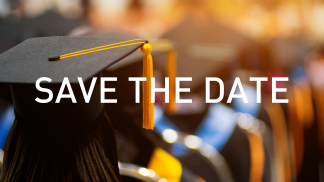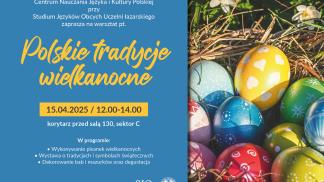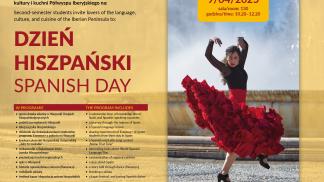<strong>What made you decide to become an anatomy lecturer?</strong>
I have always been passionate about medicine. During my studies, I intensively participated in the Anatomical Circle, and human anatomy was my favorite subject. So, as soon as the University Authorities offered me cooperation in the Department of Anatomy of the Medical University of Warsaw, I decided to take up this challenge, which I have not regretted so far. I have always liked acquiring knowledge and willingly shared it with others.
While working at the Medical University of Warsaw, I had the opportunity to exchange views and experiences with the masters of anatomy prof. W. Sylwanowicz and prof. R. Aleksandrowicz.
<strong>How do you recall the time of your studies? Do you remember your first anatomy class?</strong>
Medical studies have always been my dream. From an early age, I was interested in medicine and the potential of its use in practice.
First anatomy class - curiosity and uncertainty. The old interiors of the Anatomicum were impressive, as were the cabinets with preparations in formalin, and the ubiquitous smell of formaldehyde. Will I manage?
Most friendships were made during the first 2-3 years of study, when the groups were in a permanent composition. Majority of it survived the test of time.
<strong>What do you draw inspiration from to take on ever new educational challenges??</strong>
Anatomy is probably the most difficult subject in the first year of medical studies.
Seeing the curiosity, interest, and hard work of students, my goal is to find better ways to teach anatomy.
I am looking for better forms of presenting anatomical issues that facilitate understanding and remembering anatomical details and topographic relations.
In addition to traditional classes on models, 3D models and wet preparations, we have access to the best textbooks and anatomical atlases (including video recordings of the preparation of structures with a teacher's commentary).
In my work with students, I try to combine traditional anatomical knowledge with histology, physiology, pathophysiology and new, fascinating possibilities of imaging anatomical structures by non-invasive and invasive methods (ultrasound of individual organs, echo of the heart, CT, MRI). Remembering that anatomy, together with other basic sciences, constitutes an introduction to clinical subjects, <em>"Anatomia clavus et clavis medicinae est"</em>, I try to present the clinical aspects while discussing anatomical issues.
I organize classes in small student groups to talk and discuss topics directly, which is always conducive to learning and helps building partnerships with students, who will become doctors soon. Present times allow the use of new technologies and educational programs, thanks to which students can interactively and in detail learn about the structures of the human body. This is a tremendous advance in teaching and a fantastic learning aid.
<strong>Medicine - what is its role in your life?</strong>
Teaching and medical work occupy a large part of my life. You could say that medicine has always been with me. It gives me a lot of satisfaction, but it is also a burden for me, related to the responsibility that the doctor bears towards the patient. When practicing a medical profession, it is especially important to notice the beauty of life, especially spending time with your own family and cultivating your interests and hobbies.
<strong>So, the word ‘doctor’ for us students - adepts of this art, should mean ...?</strong>
The doctor should be a professional. However, you should always remember about the humane face of the profession, about diligently performing the duties of a doctor, but also about empathy for the sick and suffering.
The work of a medic involves many years of study and the need for continuous training and gaining new practical experience and skills.
It is worth developing interests and broadening the knowledge comprehensively, which facilitates a trust-based relationship with the patient. A sick person is coming not only with a disease, but also the psyche, social and other problems.
You should also remember that the doctor's work is more and more often a team work. You have to respect one another, value each other and share the acquired knowledge.
<strong>What advice for the next years of study could you give us?</strong>
<em>"REPETITIO EST MATER STUDIORUM"</em>. The medical profession is a difficult profession. You have to prepare well for it. Be aware that due to the extremely rapid progress and obsolescence of medical knowledge, good practice as a doctor requires constant theoretical training, using the possibilities of practical training in the best centers in the country and in the world. I would advise searching and nurturing such contacts and gaining experience in foreign institutions.
This applies in particular to last year students and young doctors.
<strong>Apart from scientific work, what consumes you in your free time?</strong>
Listening to music brings me relaxation and rest after intensive work. I appreciate the great sound of my vinyl collection. I like opera and theater meetings with friends and family.
In the evenings, nothing can replace a good book for me
<strong>What brings you happiness?</strong>
I really like direct contact with young people, their enthusiasm in what they do, not only in relation to medicine. I am satisfied with the feeling of a well done job and overcoming new challenges. I like the feeling of freedom in deciding about my life, getting to know the surrounding world, rich in its diversity. In my free time, I try to travel and gain knowledge about other cultures and traditions in different parts of the world.
However, I couldn't be happy without loved and loving family.
<strong>On behalf of all students, I wish you such specific happiness, Professor. Thank you for your time and for showing us a part of your soul.</strong>
I wish all students of the Medical Faculty a lot of health and the implementation of personal plans.
And to you, Mr. Alexander, the student with the best grade point average, I wish further scientific development and time to play the piano.
<em>Interview with LU prof., MD, PhD Elżbieta Makomaska-Szaroszyk was conducted by a student of the Medical Faculty of the Lazarski University - Aleksander Krupski.</em>
„Medicine has always been with me …” – interview with LU prof., Elżbieta Makomaska-Szaroszyk
I remember the anatomy classes conducted by Professor Elżbieta Makomaska-Szaroszyk as the time of conversation – conversation as student-master dialogue. This form of learning encouraged me to focus and work even more, but mostly it aroused interest in the subject. Crossing the University threshold at the beginning of the first year of studies gave a new, specific shape to my life. Over time, these contours began to fill with colors. One of the most important people who gave colors to my medical development was the professor. Thank you very much for that.






